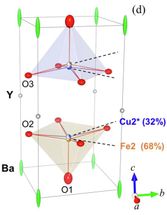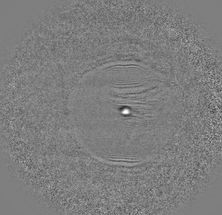New way to filter light
System could provide first method for filtering light waves based on direction
Light waves can be defined by three fundamental characteristics: their color (or wavelength), polarization, and direction. While it has long been possible to selectively filter light according to its color or polarization, selectivity based on the direction of propagation has remained elusive.
But now, for the first time, MIT researchers have produced a system that allows light of any color to pass through only if it is coming from one specific angle; the technique reflects all light coming from other directions. This new approach could ultimately lead to advances in solar photovoltaics, detectors for telescopes and microscopes, and privacy filters for display screens.
The work is described in a paper appearing in the journal Science, written by MIT graduate student Yichen Shen, professor of physics Marin Soljačić, and four others. "We are excited about this," Soljačić says, "because it is a very fundamental building block in our ability to control light."
The new structure consists of a stack of ultrathin layers of two alternating materials where the thickness of each layer is precisely controlled. "When you have two materials, then generally at the interface between them you will have some reflections," Soljačić explains. But at these interfaces, "there is this magical angle called the Brewster angle, and when you come in at exactly that angle and the appropriate polarization, there is no reflection at all."
While the amount of light reflected at each of these interfaces is small, by combining many layers with the same properties, most of the light can be reflected away — except for that coming in at precisely the right angle and polarization.
Using a stack of about 80 alternating layers of precise thickness, Shen says, "We are able to reflect light at most of the angles, over a very broad band [of colors]: the entire visible range of frequencies."
Previous work had demonstrated ways of selectively reflecting light except for one precise angle, but those approaches were limited to a narrow range of colors of light. The new system's breadth could open up many potential applications, the team says.
Shen says, "This could have great applications in energy, and especially in solar thermophotovoltaics" — harnessing solar energy by using it to heat a material, which in turn radiates light of a particular color. That light emission can then be harnessed using a photovoltaic cell tuned to make maximum use of that color of light. But for this approach to work, it is essential to limit the heat and light lost to reflections, and re-emission, so the ability to selectively control those reflections could improve efficiency.
The findings could also prove useful in optical systems, such as microscopes and telescopes, for viewing faint objects that are close to brighter objects — for example, a faint planet next to a bright star. By using a system that receives light only from a certain angle, such devices could have an improved ability to detect faint targets. The filtering could also be applied to display screens on phones or computers, so only those viewing from directly in front could see them.
In principle, the angular selectivity can be made narrower simply by adding more layers to the stack, the researchers say. For the experiments performed so far, the angle of selectivity was about 10 degrees; roughly 90 percent of the light coming in within that angle was allowed to pass through.
While these experiments were done using layers of glass and tantalum oxide, Shen says that in principle any two materials with different refractive indices could be used.
Most read news
Other news from the department science
These products might interest you
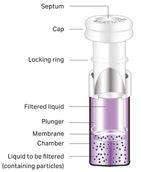
Mini-UniPrep™ by Cytiva
Improved HPLC sample preparation
Save 66% sample preparation time and reduce costs by 40%
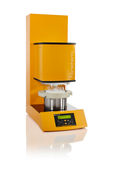
FIBRETHERM by C. Gerhardt
Automatic Fibre Extraction for Feed Analysis
FIBRETHERM from C. Gerhardt: Efficient – Precise – Method-Compliant

Hahnemühle LifeScience Catalogue Industry & Laboratory by Hahnemühle
Wide variety of Filter Papers for all Laboratory and Industrial Applications
Filtration Solutions in the Life Sciences, Chemical and Pharmaceutical Sectors
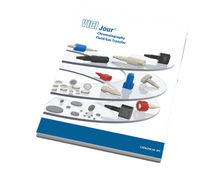
VICI Jour Katalog 15INT by VICI
The VICI Jour Catalog - Accessories for (U)HPLC and Liquid Handling
Capillaries, Tubing, Fittings, Filters, Safety-Products, Tools and much more

Get the analytics and lab tech industry in your inbox
By submitting this form you agree that LUMITOS AG will send you the newsletter(s) selected above by email. Your data will not be passed on to third parties. Your data will be stored and processed in accordance with our data protection regulations. LUMITOS may contact you by email for the purpose of advertising or market and opinion surveys. You can revoke your consent at any time without giving reasons to LUMITOS AG, Ernst-Augustin-Str. 2, 12489 Berlin, Germany or by e-mail at revoke@lumitos.com with effect for the future. In addition, each email contains a link to unsubscribe from the corresponding newsletter.











